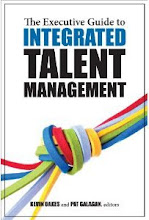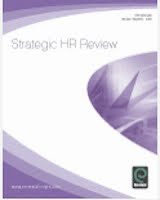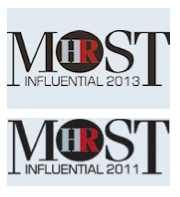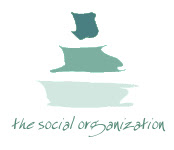As well as MOOCing, I still do quite a bit of traditional training, though I tend to be the trainer rather than the learner in these (even if I still always end up doing some learning). I don't deliver any MOOCs but I'm sure there'll be one some day!
Most of my training courses, in the UK at least, are delivered with the wonderful team at Symposium where I'm now a fairly core member of their faculty - i.e. I deliver more of their trainings than any of their other trainers and possibly more than any of these other trainers put together. In fact I reckon I probably train more HR people than anyone else in the UK.
The courses I deliver are all focused at a strategic level, responding to the changes in the world of work and aimed at creating high impact changes in businesses.
The sessions have also largely bedded down into the following three groupings which are shown on the three axes of the cube below:
- HR functional areas (shown on the side of the cube which faces you)
- Planing, measurement and implementation (on the right hand side)
- Opportunities for transformation (on the top)
The course all cover fairly similar content (there are only so many things you can say about HR) but each come at this from a different perspective, Eg in the recruitment, and the performance management courses, we talk about planning, measurement, analytics and HR's roles, and the innovation and technologies related to these functional areas. And in the technology course we talk about apps and systems, and other products and services, supporting planning, analytics and HR partnering which can be applied to recruitment and performance management and other functional areas too.
There are also close links between the courses which are shows grouped together and identified around the outside of the cube (and there a few more courses like this too - eg I'd really like the gamification and process design courses to be linked up too but couldn't get this to work in the visual.) Eg the reward and performance management courses run (or will run) alongside each other quite nicely.
In fact with Symposium we actually run the organisation design and development courses and the planning and measurement, and analytics and reporting courses, as two day events - Transforming the Organisation and People Planning, Measurement and Analysis (although people can and so just attend one day of these and that is OK as well.)
Makes sense?
Right then, which one(s) do you want to do? Oh, and don't worry - I don't include any visuals quite so complex as the one here in any of these training sessions!
Here are the upcoming sessions with Symposium:
And here is the full list:
HR functional areas
- Moving from Recruitment to Strategic Talent Acquisition
- Reward and Recognition which Works (in development)
- Re-engineering Performance Management
- Enhancing organisational capability through learning and development
- Transforming the organisation (2 days - organisation design and organisation development)
Planning, measurement and implementation
- People planning, measurement and analysis ( 2 days - planning and measurement, and analytics and reporting)
- Business and HR process design
- Job design for good work (in development)
- Getting to grips with HR business partnering
Opportunities for transformation
- Social media skills for HR professionals
- Using new HR technologies (in development)
- HR and innovation
- Gamification (in development)
- Making strategic decisions about people
In house delivery of these or similar sessions is also available - get in touch:
- Consulting Research Speaking Training Writing
- Strategy - Talent - Engagement - Change and OD
- Contact me to create more value for your business
- jon [dot] ingham [at] strategic [dash] hcm [dot] com







































